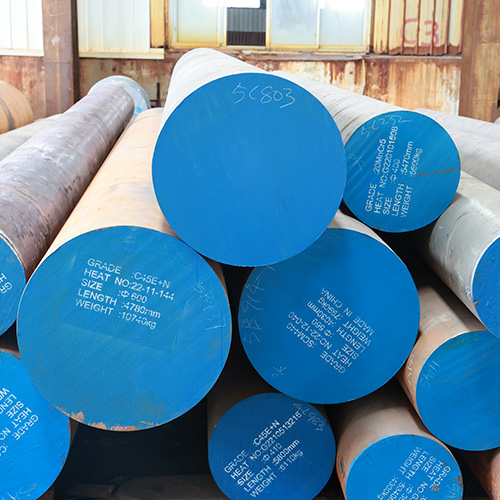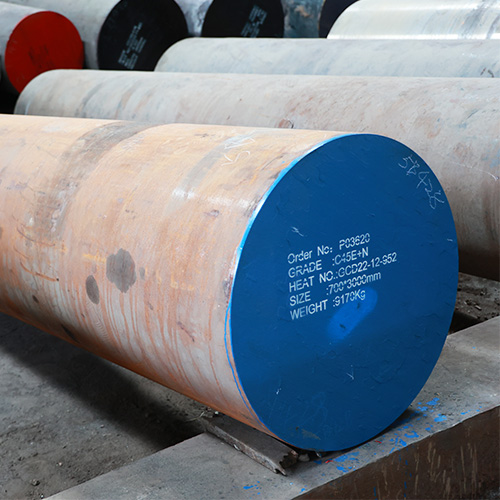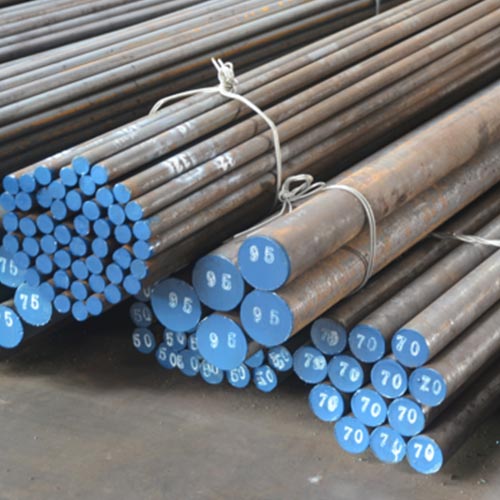Introduction

As the construction industry continues to evolve, the demand for sustainable materials has become a priority. Steel suppliers play a crucial role in providing eco-friendly steel solutions that minimize environmental impact while maintaining structural integrity. This blog will explore the top five steel suppliers for sustainable construction in 2024, focusing on their innovative practices, sustainability certifications, and contributions to green building.
Why Choose Sustainable Steel Suppliers?
Choosing sustainable steel suppliers is essential for several reasons:
- Environmental Impact: Steel production can be resource-intensive, but sustainable suppliers use eco-friendly practices to reduce carbon footprints.
- Quality Assurance: Sustainable suppliers often adhere to higher quality standards, ensuring long-lasting and reliable materials.
- Regulatory Compliance: Many regions require compliance with environmental regulations, making it vital to choose suppliers that meet these standards.
Top 5 Steel Suppliers for Sustainable Construction in 2024
ArcelorMittal
Overview
ArcelorMittal is one of the largest steel manufacturers globally, renowned for its commitment to sustainability. Their focus on reducing carbon emissions and recycling steel sets a benchmark in the industry.
Sustainability Initiatives
- Carbon Neutral Goals: Aiming for carbon neutrality by 2050.
- Recycling Programs: Over 90% of their steel is produced from recycled materials.
Nucor Corporation
Overview
Nucor is a leading steel supplier in North America, specializing in recycled steel products. Their innovative production methods highlight their dedication to sustainability.
Sustainability Initiatives
- Electric Arc Furnace (EAF): Uses scrap metal, reducing energy consumption significantly.
- Sustainable Partnerships: Collaborates with organizations to promote sustainability in construction.
Qilu

Overview
Qilu is committed to sustainable practices and innovative solutions in the steel sector. Their initiatives promote eco-friendly construction worldwide.
Sustainability Initiatives
- Circular Economy: Emphasizes reusing materials and minimizing waste.
- Energy Efficiency: Invests in technologies that reduce energy usage during production.
SSAB
Overview
SSAB is a Swedish steel company focused on producing high-strength steel with a low environmental impact. Their commitment to sustainability is evident in their production processes.
Sustainability Initiatives
- HYBRIT Initiative: Aims to produce fossil-free steel using hydrogen.
- Environmental Certifications: Holds multiple certifications for sustainable production practices.
POSCO
Overview
POSCO, a major steel producer in South Korea, is known for its eco-friendly steel solutions and commitment to sustainable development.
Sustainability Initiatives
- Green Steel Production: Implements advanced technologies to minimize emissions.
- Global Partnerships: Collaborates with various organizations to enhance sustainability in the steel industry.
Comparison Table of Top Steel Suppliers
| Supplier | Key Initiative | Carbon Neutral Goal | Recycled Material Use | Certifications |
|---|---|---|---|---|
| ArcelorMittal | Carbon Neutrality by 2050 | Yes | 90% | ISO 14001, LEED |
| Nucor | Electric Arc Furnace | Yes | 80% | ISO 14001, LEED |
| Qilu | Circular Economy | Yes | 70% | ISO 14001, Cradle to Cradle |
| SSAB | HYBRIT Initiative | Yes | 75% | ISO 14001, EPD |
| POSCO | Green Steel Production | Yes | 85% | ISO 14001, LEED |
The Importance of Certifications in Sustainable Steel
What Are Sustainable Certifications?
Sustainable certifications are essential for steel suppliers as they provide credibility to their environmental claims. These certifications can include:
- ISO 14001: Focuses on effective environmental management systems.
- LEED (Leadership in Energy and Environmental Design): Encourages sustainable building practices.
How Certifications Impact Construction Projects
When selecting steel suppliers, certifications ensure that the materials meet strict sustainability standards, benefiting the overall project by:
- Enhancing environmental compliance.
- Increasing project eligibility for green building certifications.
- Promoting a sustainable brand image.
Innovations in Sustainable Steel Production
Technological Advances
The steel industry is witnessing significant technological innovations aimed at sustainability. Key developments include:
- Hydrogen-Based Steelmaking: Reducing reliance on fossil fuels by using hydrogen as a reducing agent.
- Smart Manufacturing: Utilizing AI and IoT to optimize production efficiency and minimize waste.
Future Trends
In 2024 and beyond, the following trends are expected to shape the sustainable steel landscape:
- Increased Use of Recycled Materials: Striving for higher percentages of recycled content in steel products.
- Emergence of Carbon-Neutral Steel: More suppliers will invest in technologies to produce zero-emission steel.
Case Studies of Sustainable Steel in Action
Project 1: The Edge, Amsterdam
The Edge is one of the greenest buildings in the world, featuring steel supplied by sustainable suppliers. This project utilizes high-recycled content steel, contributing to its sustainability goals.
Project 2: Bosco Verticale, Milan
Bosco Verticale’s innovative design incorporates sustainable steel structures. The steel used meets stringent environmental standards, showcasing the impact of sustainable suppliers on architectural design.
The Role of Steel in Sustainable Construction

Structural Integrity and Sustainability
Steel is a vital material in construction due to its strength and durability. Sustainable steel suppliers ensure that this essential material meets environmental standards while maintaining structural integrity.
Lifecycle Analysis of Steel
Understanding the lifecycle of steel is critical for assessing its sustainability. Key phases include:
- Raw Material Extraction: Sustainable practices in sourcing raw materials.
- Production: Minimizing emissions and waste during manufacturing.
- Construction and Use: Ensuring longevity and recyclability of steel products.
Conclusion
As the demand for sustainable construction continues to rise, steel suppliers play an indispensable role in providing eco-friendly materials. The top five steel suppliers highlighted in this blog—ArcelorMittal, Nucor, Qilu, SSAB, and POSCO—are leading the way in sustainable practices and innovations. By choosing these suppliers, construction projects can achieve their sustainability goals while ensuring quality and reliability.
FAQ
Q:What is sustainable steel?
A:Sustainable steel refers to steel produced with minimal environmental impact, often involving recycled materials and energy-efficient processes.
Q:Why is recycling steel important?
A:Recycling steel reduces waste, conserves natural resources, and minimizes greenhouse gas emissions, contributing to a circular economy.
Q:How can I identify sustainable steel suppliers?
A:Look for certifications such as ISO 14001 and LEED, and investigate the supplier’s initiatives regarding carbon emissions and recycling.
Q:What are the benefits of using sustainable steel in construction?
A:Using sustainable steel can lead to reduced environmental impact, potential cost savings, and improved project eligibility for green certifications.
Q:Are there government regulations regarding sustainable steel?
A:Many regions have regulations that promote the use of sustainable materials in construction, often tied to green building standards and incentives.
